A Life: Hideko ‘Yumi’ Smith; ‘She carried that smile with her all of her life’
| Published: 06-18-2023 7:01 PM |
ORFORD — When Hideko “Yumi” Smith taught her younger family members how to play card games, her motivation was twofold: learning how to play a game and managing money.
“She wouldn’t show mercy to the kids just because they were kids,” Smith’s second-oldest daughter, Sandra Smith-Ordway, of Fairlee, said. “She’d collect the money because usually she was the winner each time,” but then she’d slip money back to them. “ ‘Get yourself something,’ she’d say.”
That was an example of the wisdom that Smith, who died June 27, 2022, after a period of declining health, imparted to her family: Learn to take care of yourself and look out for your loved ones.
“We were all fiercely independent,” said Barbara Smith Normandin, of Fort Myers, Fla., the oldest of Smith’s six children. “That’s how she was because she had to be, to come over here and lead the life she had. And strong. She was extremely strong.”
Smith arrived in the United States in 1963, almost three years after she and her husband, Charles Smith Sr., were married on Okinawa, where she grew up. The couple met when Charles, then an active-duty Marine, was stationed on Okinawa. Yumi Smith was visiting the base with a friend to deliver food, and the future couple locked eyes. Her smile was the first thing he noticed about her.
“She carried that smile with her all of her life, all of her life,” Smith Sr. said.
A few weeks later, Yumi returned to the base and they started to see each other regularly. Around three months later, Charles was sent to Taiwan and when he returned after six months, they decided to get married.
“It took us about a year and half to get married through all the red tape and all,” he recalled. Smith Sr. also needed to win over his future wife’s family — most importantly her older brothers, who served as the head of the household after their father died during World War II.
Article continues after...
Yesterday's Most Read Articles
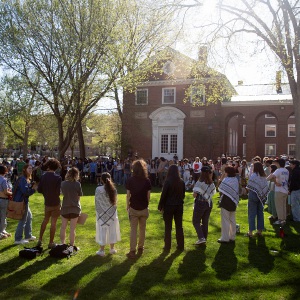 Dartmouth administration faces fierce criticism over protest arrests
Dartmouth administration faces fierce criticism over protest arrests
 West Lebanon crash
West Lebanon crash
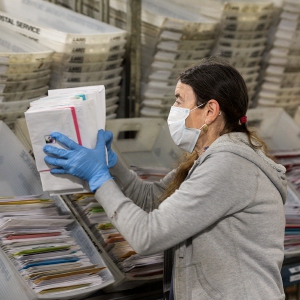 Plan on track to ship Upper Valley mail to Connecticut for sorting
Plan on track to ship Upper Valley mail to Connecticut for sorting
 Lebanon’s Jewell back from auto accident, more aware of ‘drowsy driving’ dangers
Lebanon’s Jewell back from auto accident, more aware of ‘drowsy driving’ dangers
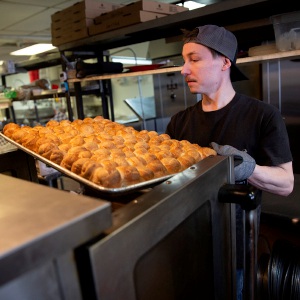 Longtime employees buy West Lebanon pizzeria
Longtime employees buy West Lebanon pizzeria
Yumi Smith was born on Feb. 2, 1939, on Okinawa. Japan formally entered World War II in September 1940. While she didn’t talk much about her childhood, Smith Sr. knew her family spent three months living underground to try to avoid the fighting.
“Her and her brother, I know one day she said that he saved her life by pushing her down a well,” Smith Sr. said, recalling one of the few stories she shared about her early childhood. After a strafing American plane passed by, they climbed out of the well.
Yumi Smith was proud of her Okinawan heritage and culture, which is different from those of Japan’s larger islands. She could speak Okinawan, Japanese and English, often translating among all three languages in the span of a short conversation.
“There’s a big difference between being Okinawan and Japanese,” Smith Normandin said. “She’s Okinawan.”
The couple were married on May 17, 1960, at the American Consular Unit, in Naha, Okinawa, and spent the early years of their marriage on Okinawa, where their oldest daughters were born. They were separated for 11 months after the Marines reassigned Charles stateside. In 1963, the family moved to the United States, touching down in San Francisco.
“We got on the bus going down to San Diego, and she says ‘Are we going to be home soon?’ not realizing how many miles it was,” Smith Sr. said. “It was quite a long trip, and it was hard for her to even think about how vast the United States is because her home was only 11 miles wide and 76 miles long.”
They first spent time at Camp Lejeune, N.C., before moving to Fairlee in 1964 and settling in Orford in 1965 where Charles grew up. She took to the landscape’s differences with a sense of humor, affectionately calling the smell of manure “American perfume.”
Smith Sr.’s family quickly made Yumi Smith feel welcome. She got used to life in the Northeast, though having grown up on a warm island, she was initially puzzled by how pipes could freeze in the winter, her husband recalled. Smith Sr. spoke Okinawan and Japanese and, along with her children, helped her improve her English skills.
“She overcame the language barrier by teaching us to read at an early age, and that in turn helped her to learn the language. She overcame discrimination by showing and teaching honesty and respect,” Smith-Ordway said. “And she always said that no matter what, when we were out in public, ‘Remember, your name is important and don’t mess up the name by doing something bad, or your actions will reflect on your family,’ because in the Asian culture, face is everything — who you are, your word.”
People were generally welcoming, but the couple’s six children were teased at school because they were different.
“There was bullying here in the United States,” Smith Normandin said. “It’s just a fact of life, and Mom was fierce about making sure that we protected each other. We defended each other; we took care of each other.”
She pushed her children to do well in school and take advantage of all the opportunities that came their way.
“She ended up teaching us that even though we were different, she expected — and Dad expected — an achievement of excellence no matter what,” Smith Normandin said, noting that the kids were high achievers involved in multiple extracurricular activities. “You didn’t have to be the best at something; you just had to be the best you could be.”
During her first decade in the U.S., Yumi Smith kept in touch with her family in Okinawa through letters. In the 1970s, she was finally able to speak to them by phone and she returned to Okinawa in 1985 for the first time since leaving.
“I know it’s really a small comparison, but when I think about how much I miss her, just this year, I can’t imagine (22) years without seeing your family,” Smith-Ordway said. “When I think about how she came to the US … I just can’t imagine the strength that it took to leave your family that way, and I know that she wasn’t happy all the time here because I know that she was overcome by homesickness a few times to the point where, it wasn’t debilitating, but it definitely was a hard time to get through, but she just kept pushing forward and she stuck to it.”
Yumi Smith took pride in her home, and keeping it in tip-top shape was important to her. She took down and starched her curtains every season. Every Saturday, the children were assigned chores to clean the house.
“You had to do all your chores and everything first before you got to do anything,” said Charles Smith Jr., of Orford, the third-oldest. He remembered being tasked with wrapping a butter knife with a cloth to clean the edges of the floors.
“You could eat off her floors,” Cindy Weir, who met Yumi Smith in 2011 in Myrtle Beach, S.C., where the Smiths spent winters in retirement, wrote in an email.
That attention to detail extended to her garden, where Yumi could often be found plucking weeds one by one while perched in a low squat for hours.
“I don’t know how she’d stay there, because my knees would have been falling off after the first hour,” her son joked.
Providing her family with good food was important to her. Each meal had to have a good cut of meat, which her children said likely extends back to her childhood when she often had to go without.
“She cooked food nobody else in the whole town even understood, but we just thought of it as natural,” Smith Normandin said. New Year’s was a particularly important time of year, when Yumi Smith would cook one of her specialties: a giant pork roast, pink rice and red beans.
Yumi Smith decided to become a citizen in the early 2000s and hired a tutor to learn more about American history. Her husband said they had talked about retiring in Okinawa, but as retirement approached she changed her mind.
“She said, ‘No, my family is here in America, and that’s where I’m going to stay,’ ” Charles Sr. recalled. “It took her a long time to do it, because it was hard for her to understand the questions. She still spoke a lot of broken English and it was difficult, but she finally made it and she was very happy and pleased.”
During her citizenship exam, her sense of humor showed through. One of the questions the judge asked her was to name holidays celebrated in the United States.
“She said, ‘Well, there’s the Fourth of July and Christmas,’ and then there’s another one, and she had a hard time pronouncing Ls, Vs and Rs, so instead of Thanksgiving she came up with the name Turkey Day,” Charles Sr. said. “And (the judge) looked at her and said, ‘That’s close enough.’ ”
Her sense of hospitality was strong, and she welcomed newcomers. When Weir and her husband began wintering in Myrtle Beach, Yumi Smith was sure to tell her where to find the best bargains. Weir would run new stores by her and ask her opinion.
“Always, she gave her opinion and did not beat around the bush,” Weir wrote. “Yumi told it like it was.”
She wasn’t afraid to ask questions, no matter how personal. But she did it in such a way that she never came across as rude. She also had no qualms about cutting someone out of her life if they deserved it: Smith Normandin recalled when a longtime friend made a derogatory comment about Black people. Yumi Smith never spoke to her again.
“That’s just how fierce her protection of the family is,” she said.
She was also generous, both with her time and materially.
“I didn’t dare say I liked something because the next time I saw her, she had either made it for me or bought it,” Weir wrote. “She enjoyed so much in giving to others. To Yumi, others, especially her family, came first.”
Yumi Smith was also a devoted Bingo player and would play up to 48 cards at a time, but 36 was her sweet spot. If her family members were playing with her, she’d keep an eye on their cards, too (and point out when they missed a number). She was a regular at the weekly bingo games Kathleen Bradley ran in White River Junction, where she was loved by staff and fellow players alike.
“She’d be forever bringing in slips and starter roots of plants that were extras of hers,” Bradley said.
As the family grew to include 11 grandchildren and 12 great-grandchildren, Yumi Smith was a constant presence in their lives. One of her greatest joys came from the time she spent with her family, and she delighted in each new addition.
“My mother is a beautiful woman, but there was nothing more beautiful than watching her hold one of her children or her grandchildren or great grandchildren,” Smith Normandin said. “The love in her face, just amazing.”
Liz Sauchelli can be reached at esauchelli@vnews.com or 603-727-3221.

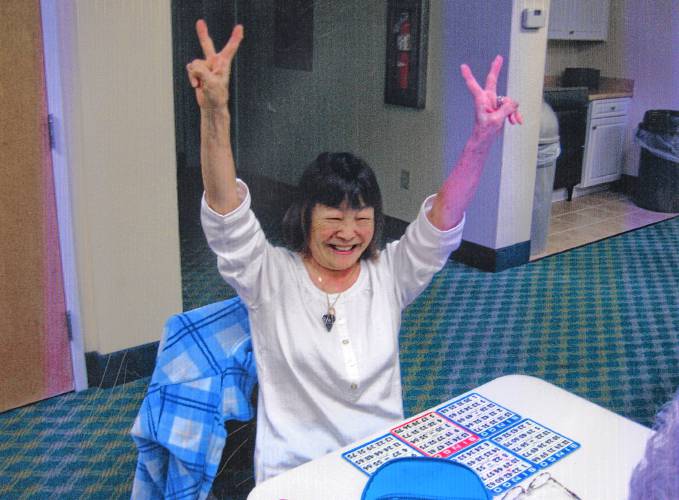
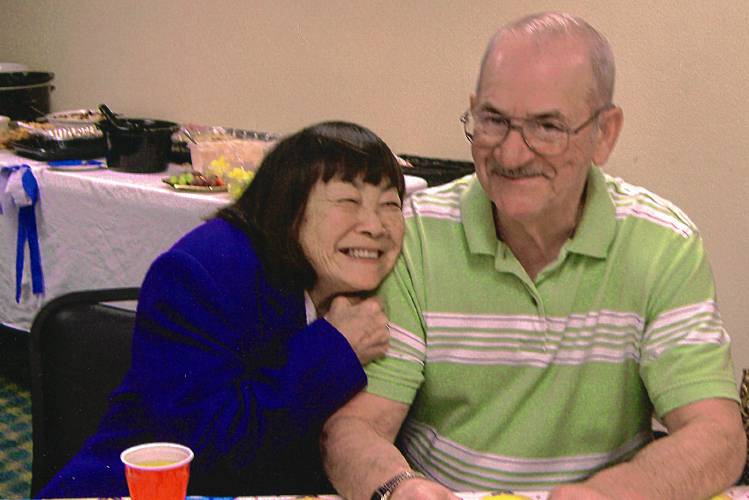
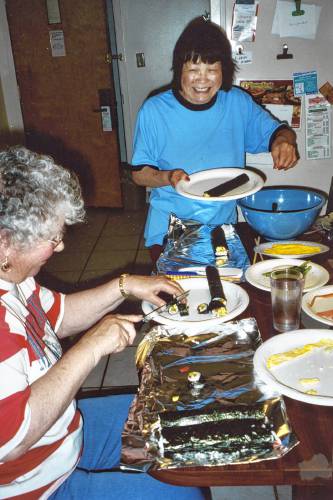
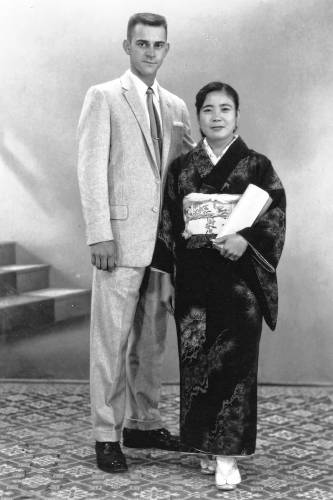
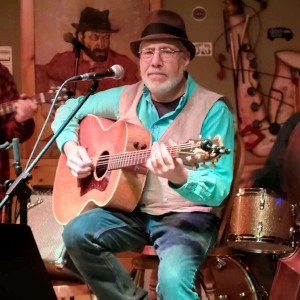 Art Notes: Canaan Meetinghouse showcase brings musicians and listeners together
Art Notes: Canaan Meetinghouse showcase brings musicians and listeners together A Look Back: Upper Valley dining scene changes with the times
A Look Back: Upper Valley dining scene changes with the times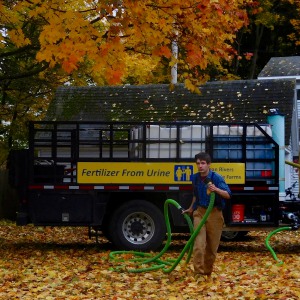 The future of fertilizer? Pee, says this Brattleboro institute
The future of fertilizer? Pee, says this Brattleboro institute
